


The underlying premise of Simulacra has a lot of potential. But the player begins to see how narrow and linear the experience is within an hour or so of play, and if you are determined to play through multiple times to experience different endings, the illusion becomes threadbare to the point of transparency and the play becomes tedious. As others have said, the experience of playing this game would probably be quite immersive on an actual phone. *For* a cell-phone game, it's a pretty neat bag of tricks. For a PC game, however, the inability to have actual save-game slots becomes a real burden. The occasional stings and jump-scares become eye-rolling. And having to type certain things in *exactly* while limited to a narrow tree of branching dialog choices (many of which make no practical difference in effect) that often fails to offer what you might actually want to say and frequently railroads you in service of moving the plot forward makes for a particularly awkward contrast. (No, jerkface, I *don't* want to help you break in to your ex-girlfriend's apartment... But the plot doesn't seem to offer me a lot of alternatives, now does it?) Be aware, if it matters to you, that there aren't really any out-and-out "good" endings. The "best" possible ending involves doing something morally questionable and has disturbing implications for what may become of "you" as a result. I have to give the game a bump that it is, at least, AWARE that that morally questionable decision is sketchy... But then take that bump away in that there's very little that would cue the player that that was the proper way to go to achieve that "best" ending. I got the two "second-best" endings before resorting to a guide, and even at that had to do it twice (again, you have to type in exactly what the game is expecting in a particular field). But, it did hook me enough to make me play through to get three endings, so I can't entirely knock it. I just wish I felt more rewarded for the effort.
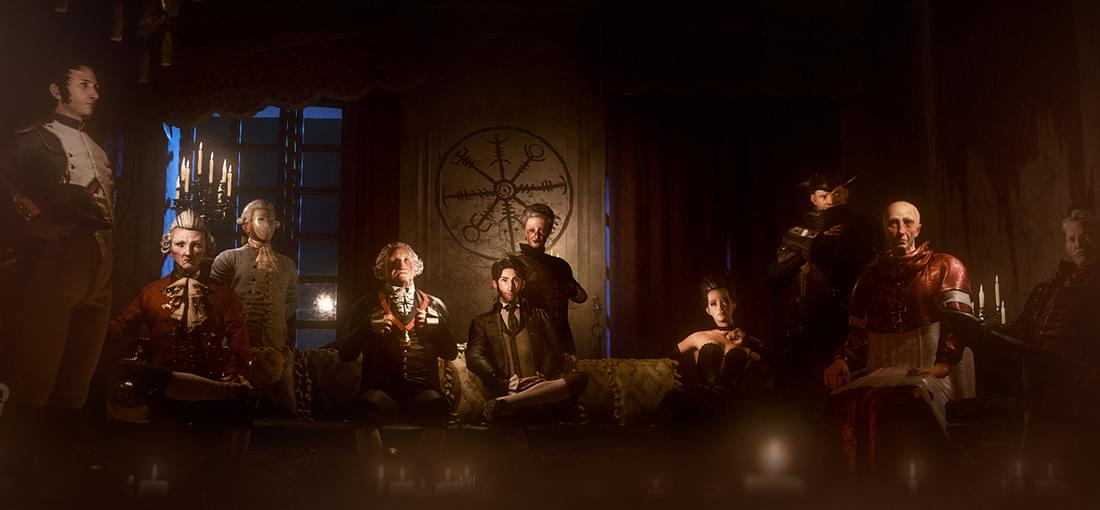
The game takes place at the island mansion of a secretive power broker, shortly before the rise of Napoleon. It's an unusual and fresh setting for intrigue, where grandeur and sophistication seem in sharp contrast to cruelty and violence. Some things about "The Council" will feel very familiar to those familiar with the now defunct (kinda-sorta-mostly) Telltale Games and offerings like "TWD" or "Wolf Among Us". Control your character from a mostly third-person view, walk around, talk to people (shifting into a more cinematic style of back-and-forth, sometimes with a time limit between choices), collect things to put into your inventory, solve puzzles. The most significant difference is that there's a sort of light RPG element cast over things, one geared towards social conflict, not combat. You are encouraged to learn other characters' weaknesses and immunities, maybe learning that your skill in Etiquette can be used to fluster those unused to high society but that a statesman will run circles around you in Politics. You have a limited stock of energy to wield the skills, which can often lead to more favorable outcomes. There seem to be a significant number of story branches. Many may not have long-term significance, but help to flesh out the story, giving the player a sense of success and failure (echoed in a "you succeeded in- you failed in- you could have-" summation at the end of each chapter, complete with XP allocation and new skills). "The Council" falls prey to two big criticisms. The energy to use your skills is mostly renewed by discovering consumable items, and their availability is erratic. The game also gets visibly rougher in later chapters, mostly ceases to provide new settings or characters, and over-relies on recycling its assets. It feels rushed and anti-climactic. Still, it's a strong game from a relatively small team, and will ease the pain of those missing Telltale. Its problems merely drop it to the level of "good", instead of "great."
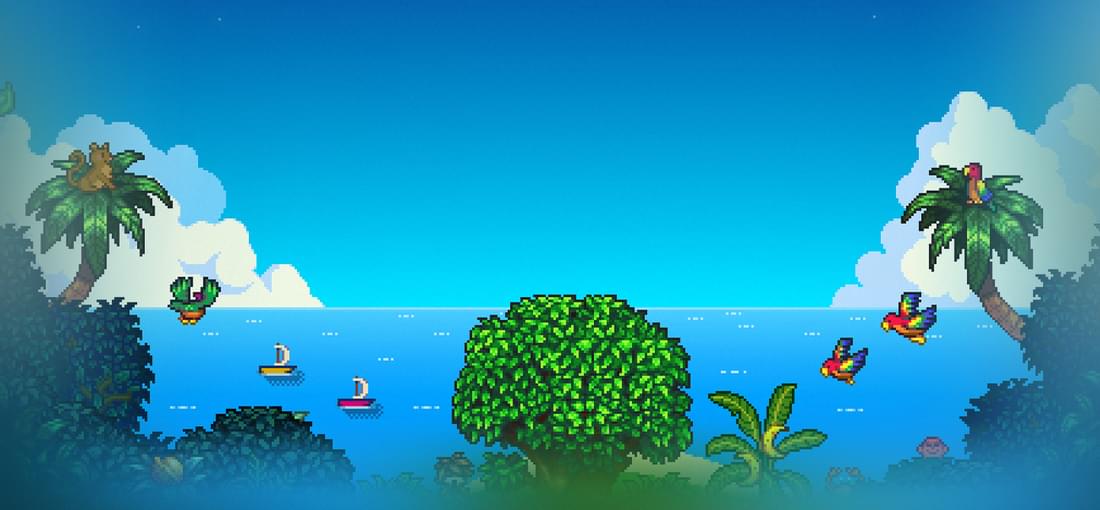
That title might sound like a slur. It's not. Sometimes you really need a little chamomile tea. It soothes your nerves, it settles your stomach, it puts you in a warm, comfy place where everything is okay for a few minutes. Your real-life job keeps getting undone by incompetents who expect you to fix their mistakes. Your friends on social media are at each other's throats. You're part way-through a grim sepia first-person shooter and an adventure game whose creators think making you choose between three different bad options, all of which have predictable tragic consequences, constitutes good writing. Come to Stardew valley. Learn how to fish. Mull the benefits of planting a mess o' corn versus a patch of amaranth. Settle down and marry a nice girl or fella. Throw your baby into the air and watch them speech bubble hearts at you. Bring the town's old misanthrope fried mushrooms and watch him slowly unclench around you. Pet your cat, or dog. What could go wrong? Well, you might overextend yourself in one of the (entirely optional) dungeons and wake up in the clinic with some stuff missing. You could catch a busted pair of glasses in the river instead of a salmon. You might accidentally swing your axe and destroy the fruit tree you'd been saving for all week. You might discover that the person you'd been buttering up to be your sweetheart really doesn't like poppies. It's okay. You'll pick yourself up and try again. You'll figure it out. It's going to be all right. Your work will pay off, you'll expand your house, and soon enough, everyone is going to wonder how the town ever got by without you. ...And then you'll look up and discover that you just spent an hour cracking geodes and aging your latest batch of mead. It's all just so... nice. I've spent way too much time in Stardew Valley, exploring all the things you can do. And if the game's web site is to believed, version 1.4 is coming. Put down the plasma rifle, and grab a hoe. A gentler life is calling...
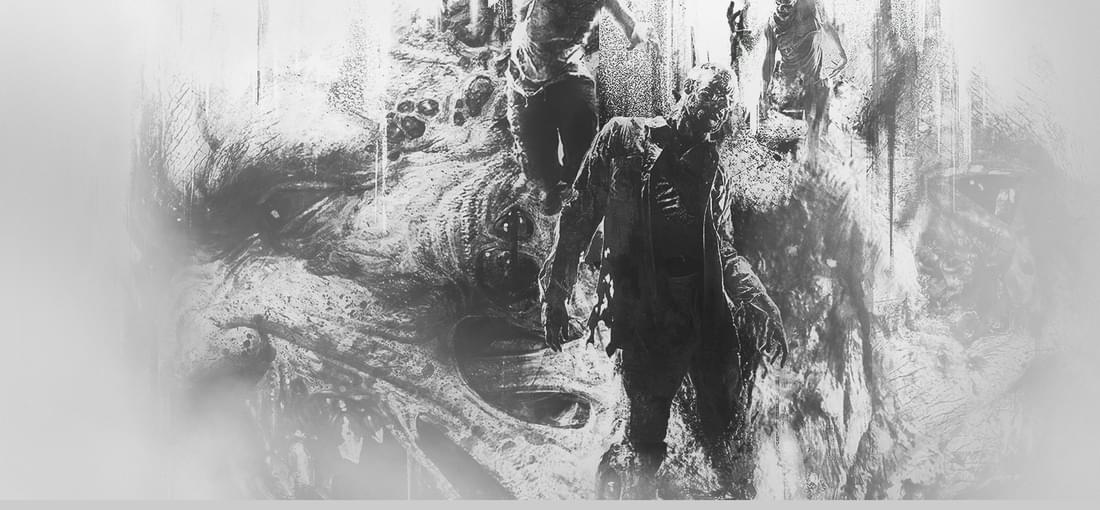
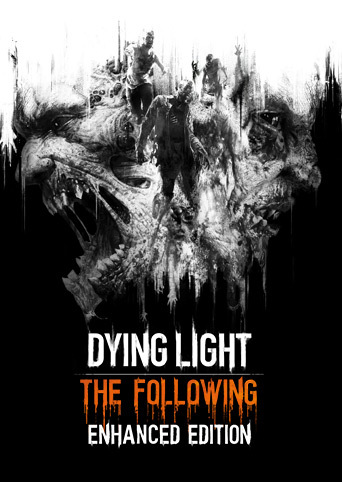
This is a game cribbed together from spare parts. Combat and crafting from "Dead Island", parkour from "Mirror's Edge", zombie variant designs from "Left For Dead", the lockpicking mechanic from Bethesda's "Skyrim" and "Fallout" games, the "main story" and "sidequest" open-world structure from, well, about a hundred different games, these days... And there's nothing strictly wrong with that, aside from how obvious the (*cough*) homage is, and how clear the seams, the whole feels like less than the sum of its parts. The main storyline is pound-your-head-on-the-table levels of stupid. It's *sort of* meta-funny that even the main character is yelling "shut up!" and "you've gotta be KIDDING me!" before the game is over, but maybe the game's creators should have clued in that players might be yelling the same thing. If our hero had taken the opportunity to kill the uncharismatic Big Bad the FIRST time he betrayed him, this game would be a good ten hours shorter. But no, we need multiple instances of melodrama, and a climax with a few dozen places that you can get instant-killed, and a culminating... sigh... Quick Time Event confrontation. Vaas, the villain is not. So. TEDIOUS. Gameplay-wise, this game loves to force the player to do multi-second animation sequences in realtime while surrounded by zombies, whether it's recovery from a drop kick or lockpicking or even stomping on a downed foe (a technique requiring such finesse that the player doesn't get it until level 9.) And the creators were so enraptured with level-scaling that what starts out as a simple task may culminate in having to cull twenty zombies to keep up with the spawn rate. It's not challenging, after a while; it's just irritating. (Yes, I know about the disguise technique- another multi-second animation, Shut up.) "Noise" has potential, but firecrackers attract to the location they're thrown, and gunshots directly to the shooter. Likewise the invincible night-time monsters. Hopeful for the sequel.
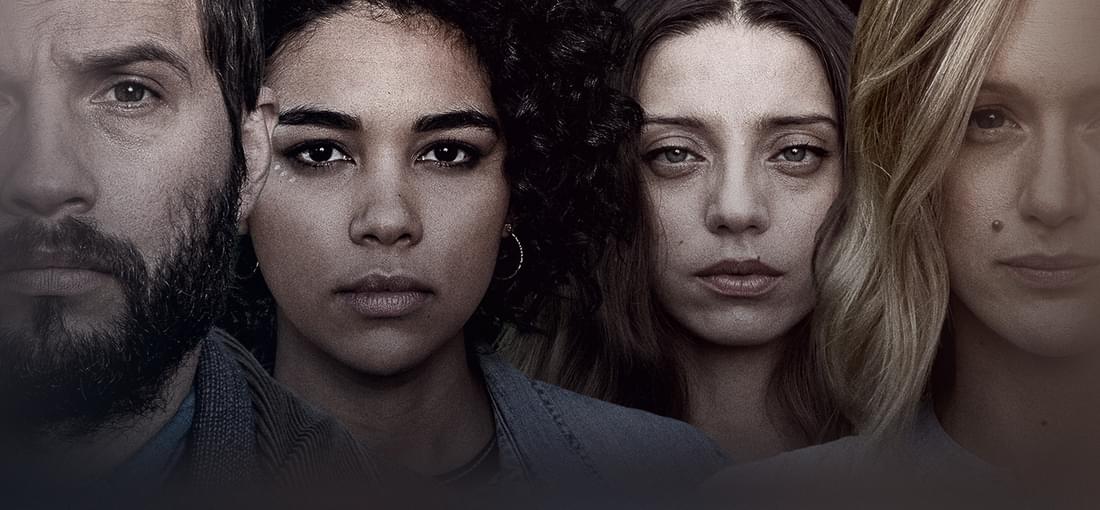
I stayed up way too late playing this game the first night I got it. And then the next day I spent a couple of hours on it. And since then... I keep meaning to go back to it, and kind of going, "why"? For me, at least, the actual subject of "Her Story", "Telling Lies"'s mechanical (though not storyline) predecessor, was only part of the focus of the game. The driving force was finding out who "I"- that is, the in-game person searching these video files and trying to piece together the story- was. The way the game spurred you on with cues on that front, signs that you were going the right direction in your searches, was masterful. "Telling Lies" doesn't seem to cue the player in quite the same way. There have been a couple of short scenes shown in the reflection on the in-game computer screen, but they don't seem especially revelatory, and in the absence of that lure... I'm ceasing to care. I've followed two of the main characters closely enough to understand quite well how their respective narrative arcs went, and it's given me enough background on the others to be able to infer where theirs went, whether the game recognizes that fact or not. I feel like I'm at a point where I'm not actually looking for more information; I'm just searching to try to make the game understand, "Okay, I get it... Now where's my denouement, damn it?" "Her Story" had a similar sort of sense of "You can keep playing until YOU feel you're done", but by the time I was done with it, it felt like the game and I were in accord. Props to the actors and director; all the performances are good, even in moments where characters are unlikable. I feel the interface could be better- an ability to skip to the beginning or end of clips isn't apparent, and a way to match two clips and hear opposite sides of the same dialogue would be really welcome. Perhaps if the mechanic becomes a trilogy... Long and short, I admire the art of the game. It just, perhaps, needed a touch more game-craft.
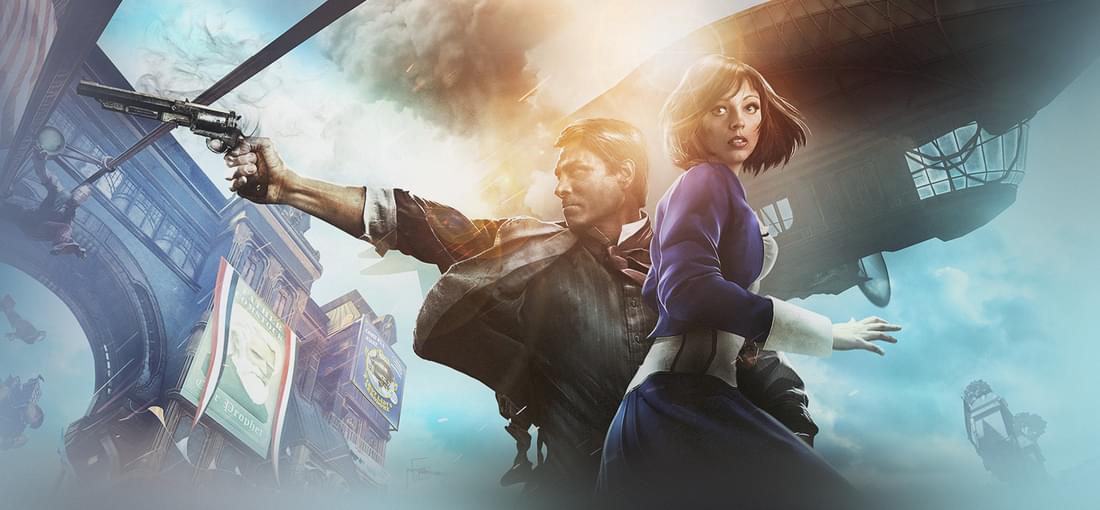
Bioshock: Infinite is a very pretty game with a marvelous sense of place and some interesting characters. The promise of what this game could have been is what ultimately makes it such a disappointment. The first quarter or so of the game steep you in the airship Columbia, packed with a delightful combination of idealized early-twentieth century Americana, hints of xenophobia, racism, and aggressive exceptionalism, and mysterious anachronisms (the soundtrack is in a class by itself). Then... You shoot and zap things. And search through wastebaskets for food and money. You curse the two-weapon limit, and get used to making do with whatever the bad guys of the area are dropping. You make a small number of story-related choices that (small spoiler) really make no difference what-so-ever. Which is kind of the point. It's just a lousy point. There are a lot of people who rave over the story, and I think it mostly just goes to show how hungry people are for mainstream games that have a story *at all*, beyond the kind of "here's why you're shooting people" that goes into a made-for-cable C-grade action flick or a Tom Clancy knock-off. But it's not a story that bears real examination. It's faux-intricate. Facade-thoughtful. It wants to delve into the supposedly infinite possibilities of alternate worlds (which does everything from time-travel to creating ghosts when we need a supernatural-not-really boss fight), and then it wants to tell the player that for all the "applied phlebotinum" that power is used for throughout the game, there's really only one possible conclusion, and what you want is irrelevant. With that, it leads the player by the nose to its "inevitable" ending. The conflict between infinite possibilities and inevitability is only one of several inconsistencies the plot does not address. Early previews hinted at a different game and a different story (Comstock's identity, Elizabeth's finger.) What we got feels like it was a front-loaded compromise.
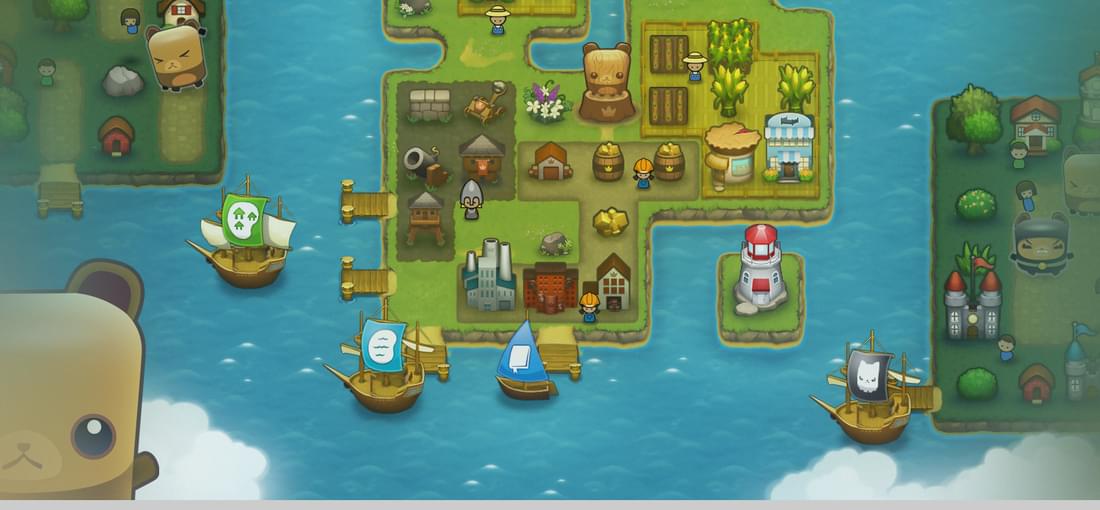
I guess it has to be acknowledged that in a way, I'm reviewing not the game, but my reaction to it. I have an island with the level "10" buildings in Farming, Military, and Industry, and anyone who has played the game can have a rough sense of how long that takes to accomplish. There are games that I've sunk that much time into that I don't regret, but this isn't one of them. It's great at creating compulsive play, but ultimately it feels arbitrary, grindy, and stingy. Like I didn't so much become accomplished at playing it as I "weathered" it. The underlying system is obnoxiously random, and where it isn't random, it's punitive. Everything you buy with your gains from grinding ultimately goes towards trying to corral the game's systems into mitigating that randomness, and it's always eventually a losing battle where the randomness or arbitrary player-punishment will overtake any vestige of skill. If you aren't struggling with ninja bears ruining your plans, you're cursing the game for filling your needlessly limited inventory slots with level-one terrain for use in the meta-game. Even the act of building the "best" building is punished from a practical stand-point: you get more of a end-game money bonus for the four (what happened to triple...?) buildings that went into it than you do for the building itself, though naturally by that point you need the space if you want to keep going. There's so many little things like that which are needlessly frustrating at the game and the player's expense. You can't SELL any of that junk to clear your inventory space. The interface is chunky, unresponsive, and lacking in feedback, making it very easy to mis-place pieces. Items that are given away as bonuses with whimsical abandon cost thousands of gold to BUY, leaving the player again at the mercy of the RNG. It feels like what it is: a game that was designed as free-to-play, and never properly re-imagined to ease the frustrations of the type for the sake of fun. A pity.
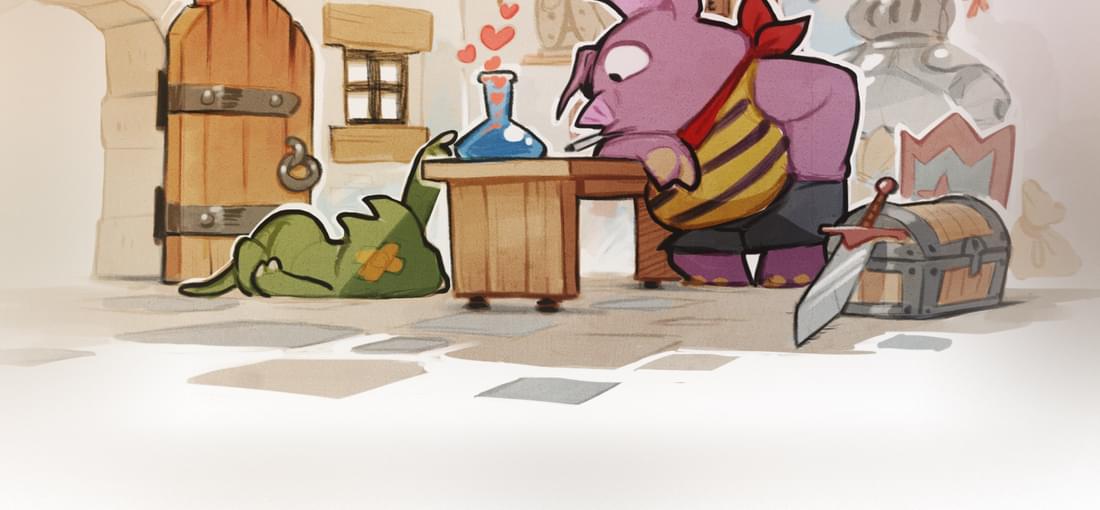
I read an article about the studio re-making this game and their commitment to honoring the original. In terms of visuals and sound, this game is an absolute treat; the cartoon re-design is utterly charming, and the music is well-orchestrated and catchy. If you've played platform games both of Wonder Boy's era and in the last ten years, though, you will probably find a laundry list of less-than-welcome reminders of how far the genre has come. Slippery movement, significant pauses to change direction, a need to get a running start to get any sort of horizontal movement in your jump (a fact the game's hazards and enemies are happy to exploit), a need to "grind" through lesser monsters to earn coins for new equipment and a few design choices that range from slapstick to downright cruel: coins that bounce out of reach before vanishing within seconds, an invincibility stun-lock during which bosses can bounce you all the way across the screen with their attacks, a hit-box on your attacks so small that you can miss something that's literally on top of you, and the "curse" that appears after bosses and cuts off your ability to actually get the coins fountaining from the site of that boss' defeat (which caught me flat-footed the first couple of times and then chased me around so much that it was incredibly difficult to get any REWARD for that hard-fought boss encounter thereafter.) Again, this isn't the fault of the re-make's creators; these were features of the original game, and by all accounts, they've actually smoothed out a few of the game's rougher edges (such as actually TELLING the player the benefit of a particular item rather than making them figure it out through trial and error). The game is charming, and even kind of fun once you get used to some of its quirks and make allowances for some others. It's just that, in the present day, games like Shantae and Steamworld:Dig have shown that games can challenge without punishing you on the design/control level.

It's the "we're going to make movies interactive" that you remember from the era of CD-ROM drives, now brought to 2017! I wish I could say that meant it didn't have some of the same problems. I have a kind of nostalgic affection for what were once termed "FMV" (Full Motion Video) games, back when the idea of a computer displaying video was novel. As such, you might want to remove a star if you don't have any such affection, and another if you think "FMV games are a crummy idea and this one needs to prove something." What I will say is that this feels like a movie. The video quality is excellent, the acting is all at par, soundtrack is decent (I do get a little tired of the "rolling kettle drum" when they're trying to generate tension), and while I doubt it received a *huge* budget, it at least was working with enough that the props and costumes look appropriate and you don't feel they're having to pretend Aunt Esther's garage is a terrorist hideout. The game regularly asks for your input, and doesn't jog horribly after you answer (a problem endemic during those CD-ROM games.) Most of your answers make little or no difference as you head towards one of the seven endings, but at least you feel like a participant rather than just a spectator most of the time. For me, the biggest problem is that there's no obvious "save" or "go back". I did accidentally go back to beginning of chapter once by hitting escape and returning to menu, but I don't know if that's consistent. Under time pressure, you can easily make what you know is a mistake even as you do it... But there's no clear way to undo it, and while it's an okay yarn, that doesn't mean you want to re-watch an hour of video several times to see how a single choice changes things. Maybe they'll patch that in...? I also agree with an earlier reviewer that, story-wise, unpredictable things->sudden insight->"successful" conclusion. You may enjoy it more as an interactive movie than as a "win/lose" game.